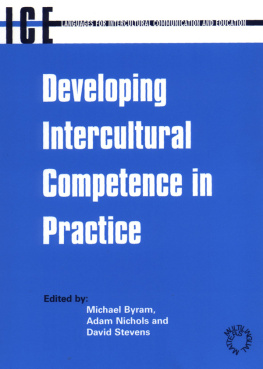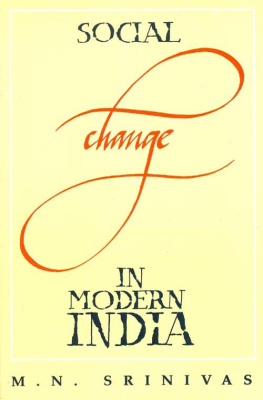Prof. David C. McClelland - The Achieving Society
Here you can read online Prof. David C. McClelland - The Achieving Society full text of the book (entire story) in english for free. Download pdf and epub, get meaning, cover and reviews about this ebook. year: 2016, publisher: Pickle Partners Publishing, genre: Politics. Description of the work, (preface) as well as reviews are available. Best literature library LitArk.com created for fans of good reading and offers a wide selection of genres:
Romance novel
Science fiction
Adventure
Detective
Science
History
Home and family
Prose
Art
Politics
Computer
Non-fiction
Religion
Business
Children
Humor
Choose a favorite category and find really read worthwhile books. Enjoy immersion in the world of imagination, feel the emotions of the characters or learn something new for yourself, make an fascinating discovery.
- Book:The Achieving Society
- Author:
- Publisher:Pickle Partners Publishing
- Genre:
- Year:2016
- Rating:4 / 5
- Favourites:Add to favourites
- Your mark:
- 80
- 1
- 2
- 3
- 4
- 5
The Achieving Society: summary, description and annotation
We offer to read an annotation, description, summary or preface (depends on what the author of the book "The Achieving Society" wrote himself). If you haven't found the necessary information about the book — write in the comments, we will try to find it.
The Achieving Society — read online for free the complete book (whole text) full work
Below is the text of the book, divided by pages. System saving the place of the last page read, allows you to conveniently read the book "The Achieving Society" online for free, without having to search again every time where you left off. Put a bookmark, and you can go to the page where you finished reading at any time.
Font size:
Interval:
Bookmark:


This edition is published by PICKLE PARTNERS PUBLISHINGwww.pp-publishing.com
To join our mailing list for new titles or for issues with our bookspicklepublishing@gmail.com
Or on Facebook
Text originally published in 1961 under the same title.
Pickle Partners Publishing 2016, all rights reserved. No part of this publication may be reproduced, stored in a retrieval system or transmitted by any means, electrical, mechanical or otherwise without the written permission of the copyright holder.
Publishers Note
Although in most cases we have retained the Authors original spelling and grammar to authentically reproduce the work of the Author and the original intent of such material, some additional notes and clarifications have been added for the modern readers benefit.
We have also made every effort to include all maps and illustrations of the original edition the limitations of formatting do not allow of including larger maps, we will upload as many of these maps as possible.
THE ACHIEVING SOCIETY
BY
DAVID C. MCCLELLAND
Harvard University
Contents
To
ROWAN GAITHER AND BERNARD BERELSON
in gratitude for their faith in the future of the behavioral sciences
This book grew out of an attempt by a psychologist, trained in behavioral science methods, to isolate certain psychological factors and to demonstrate rigorously by quantitative methods that these factors are generally important in economic development. The scope of such an enterprise turned out to be truly alarming for one whose background in the social sciences was slight to begin with. It required specialized knowledge on everything from population problems, to coal imports in England from the 16 th to the 19 th century, to methods of computing rates of economic growth, to sources of childrens books, to management practices in Russia, Italy and Mexico, to the pottery of Ancient Greece and Pre-Incan Peru. Let me confess at the outset (for it will be obvious soon enough) that I have not managed to become a real professional in many of these areas of knowledge, though I have had the advantage of much expert advice and assistance. The dilemma of the generalist trying to acquire specialized knowledge in a hurry is nicely illustrated by what happened to me when I asked a colleague, an eminent Harvard historian, to recommend a book to me that would bring me up to date on English history. I also mentioned that as a budding scientist in college, I had unfortunately managed to escape all courses in history, so that my mind was practically a tabula rasa on the subject. He simply looked at me aghast, murmured my God! and turned away. Perhaps the self-taught scholar deserves such a responseat any rate he sometimes gets itand so may this book among specialists on particular topics it had to cover in the search for the broadest possible test of the hypothesis that a particular psychological factorthe need for Achievementis responsible for economic growth and decline.
The problem of covering so much intellectual territory is actually twofold. On the one hand, there is the strong probability of simple human error. For example, in the thousands of calculations on which this book is based, it is unlikely that no mistakes have been made. Not even the mechanical equipment that produced many of the numbers used proved infallible. It coughed at least once in some thousands of computations and refused to give one correlation it should have. Possibly in some places I have used incorrect or out-of-date datae.g., on the electrical production of Pakistan or the location of 6 th -century Greek vase remains. In others I may have overlooked an obviously better statistic or used an inadequate method of data analysis. For such errors, though I have tried hard to eliminate them, I apologize in advance and hope readers more expert than I will correct them. The only excuse is the sheer scope of the undertaking.
On the other hand, and more seriously, there may be errors of conceptualization. It was hard to learn enough about so many different matters to assure a grasp of their main features. I was constantly aware of the danger of being naive about a very complex historical or economic problem. Yet I also came to feel that naivet is not wholly a disadvantage. For example, in trying to solve the problem of how to compute comparative rates of economic growth, I was not hampered by any preconceptions. In fact, I had dropped my one course in college economics because it seemed to me such an abstract, rationalistic discipline that took so little account, at least at that time, of how men actually behave economically. So, having little formal training in economics, I did not accept so easily as most economists do by habit, the long tradition of using index numbers and estimates of national income in fixed prices. This traditional method seemed to be so objectionable that I adopted a different approach, based on sampling theory and regression analysis. I do not expect economists readily to accept such an approach, even for the limited purpose of comparing rates of growth, nor am I sure that it is entirely adequate, yet I do feel that my very lack of training in economics may have made it easier for me to break with a traditional but inadequate method of measurement and to look at the problem in a different way.
But how did I get involved in covering so much territory in the first place? Why risk being superficial? The answer lies in the general methodological approach of the book, which is in the tradition of comparative history, comparative economics or a psychology interested in generalizations that apply to all or most of the human species. In other words, the book attempts to answer general questions, not specific ones; it does not probe the particulars of the Industrial Revolution in England but examines the factors underlying that revolution which were common to other such waves of rapid economic development in history.
I am well aware that the search for such generalizations is often suspect. What is the point, the argument runs, in knowing what generally happens (even if it were possible to know), when the really important fact is what happened in this case, in this country at this particular time? For after all I am by profession a clinical psychologist where such an argument is also particularly appropriate. What good is a generalization about human nature when you really want to know what makes this particular person neurotic at this time? Why not study him as an individual, rather than waste time analyzing other people in order to discover what makes people neurotic in general?
It is perhaps because I have spent time analyzing particular cases that I feel the need for generalizations and a comparative frame of reference. It is so easy to be mistaken if you analyze only a particular case. The clinical psychologist may decide, for example, that George is neurotic because his mother mistreated him. The detailed case record makes the point very clear. Yet might not the clinicians view of the case be quite different if he knew that mothers from Georges social background generally mistreated their sons and that most of those sons did not become neurotic? I have seen in writing over and over again that such and such a country, say India, cannot develop rapidly economically because it has such a high population density and/or a high net reproduction rate. The case record makes it clear: it does have a high population density, a high net reproduction rate; it is having difficulty developing. The two events would seem to be logically connected because the more mouths there are to feed, the harder it is to feed them adequately. Yet doesnt the perspective on such a case analysis change when we discover that (1) in general rates of population growth have not been connected with rates of economic growth (Chapter 1) and (2) India, as compared with nations in general, is at the present time developing rapidly despite her population problems (Chapter 3)?
Next pageFont size:
Interval:
Bookmark:
Similar books «The Achieving Society»
Look at similar books to The Achieving Society. We have selected literature similar in name and meaning in the hope of providing readers with more options to find new, interesting, not yet read works.
Discussion, reviews of the book The Achieving Society and just readers' own opinions. Leave your comments, write what you think about the work, its meaning or the main characters. Specify what exactly you liked and what you didn't like, and why you think so.











